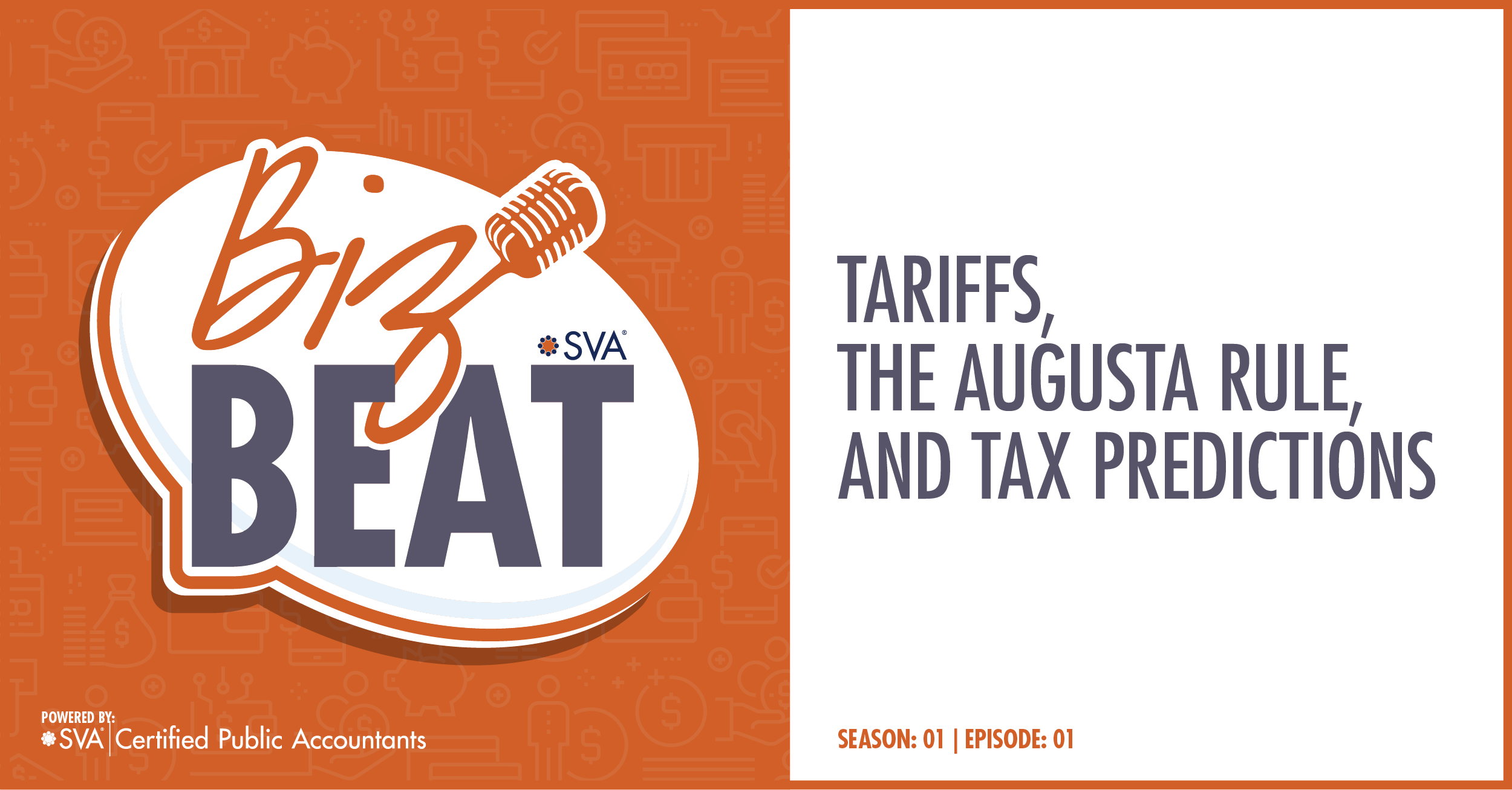| Highlights: |
- The article explains recent changes to tariff rules and how shifting trade policies are affecting costs, pricing, and supply chains for business owners.
- It outlines available tax opportunities and planning considerations that may help offset tariff impacts through credits, deductions, or strategic structuring.
- The post emphasizes proactive analysis and advisor collaboration to manage compliance, mitigate risk, and adapt business strategies to evolving trade regulations.
|
Recent changes to U.S. trade policy are reshaping how businesses think about supply chains, manufacturing, and international sourcing. With new tariffs introduced and then temporarily paused for most countries, business owners are once again being forced to reexamine their exposure to global volatility.
(Download Video Transcript)
Immediate Impacts: Rethink Your Supply Chain
For business owners, particularly those in manufacturing or distribution, now is the time to evaluate supply chain risk. Companies that rely on suppliers based in China or domestic suppliers who source components from abroad could be impacted by significant tariff increases.
Even if your direct supplier is U.S.-based, it’s important to know where their materials are coming from. A hidden reliance on foreign components could lead to pricing shocks or delivery delays if tariffs remain elevated or become more unpredictable.
In response, many businesses are exploring alternative sourcing or reshoring parts of their production processes to avoid future disruption.
Be Proactive: Monitor Policy Shifts
The current trade environment is fluid. While many tariffs have been temporarily paused, policies remain in flux and can shift quickly depending on international negotiations or domestic legislation.
Staying current on tariff updates is as important as tracking tax law changes or interest rate trends. Business leaders should build policy monitoring into their operational planning, especially during the 90-day pause period currently in effect for most countries.
Tariff Engineering: A Strategic Workaround
In industries where imported components are unavoidable, some companies are turning to a tactic called tariff engineering. Tariff engineering is the practice of modifying product design or shipment structure to qualify for a lower tariff classification.
For example, let’s say you’re importing eyeglasses. The completed glasses might carry a higher tariff, but if you ship the lenses and frames separately and assemble them in the U.S., you could lower your total tariff cost.
This strategy requires careful legal and logistical planning, but for companies with high exposure to tariffs, it can translate into real savings.
A Tax Strategy You Might Not Know: The Augusta Rule
Beyond tariffs, there are also unique opportunities in the tax code that can offer meaningful benefits.
One is the Augusta Rule, which allows individuals to rent out their primary residence for up to 14 days per year without having to report the income on their tax return. It was originally designed for homeowners renting during the Masters golf tournament in Augusta, GA, but it applies nationwide.
Business owners sometimes use this rule creatively by hosting company meetings in their home and charging the business fair-market rent. Whether renting for a local event or using your home for internal business functions, it’s a strategy worth exploring.
What's Coming Next: Tax Legislation on the Horizon
With major provisions of prior tax legislation set to expire at the end of the year, new tax laws are on the way. While the exact timing remains uncertain, history suggests new legislation is likely to pass before year-end.
Key issues under consideration include extending existing tax cuts, modifying income thresholds, and possibly introducing new tax breaks tied to overtime, tips, or Social Security income. Business owners should stay alert for these developments and start conversations with advisors to prepare for potential changes.
Stay Ahead with The Biz Beat
Want more insights like these? The Biz Beat by SVA is your weekly go-to source for practical tax and business advice.
Subscribe on Apple Podcasts, Spotify, or YouTube
Submit questions at sva.com/bizbeat
© 2025 SVA Certified Public Accountants

